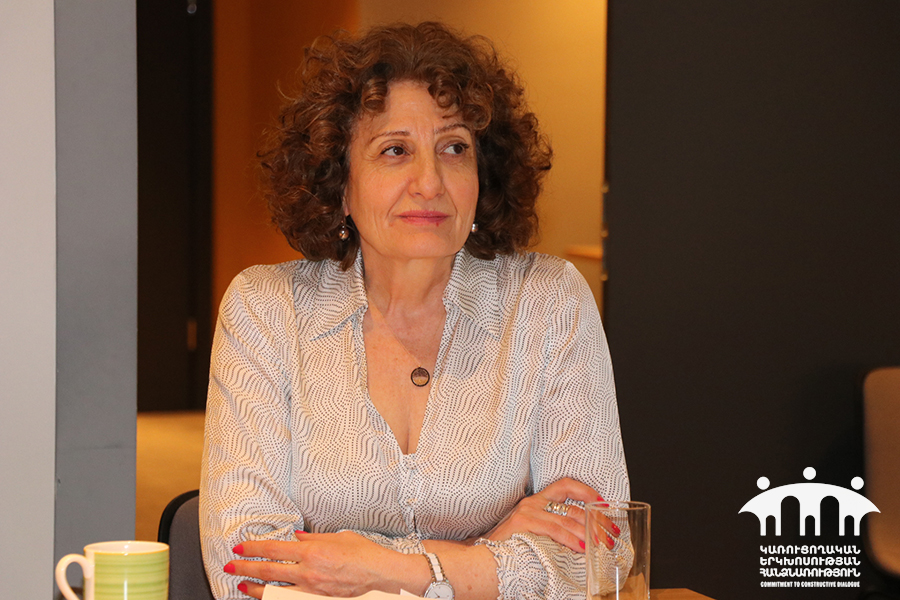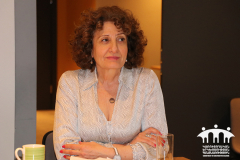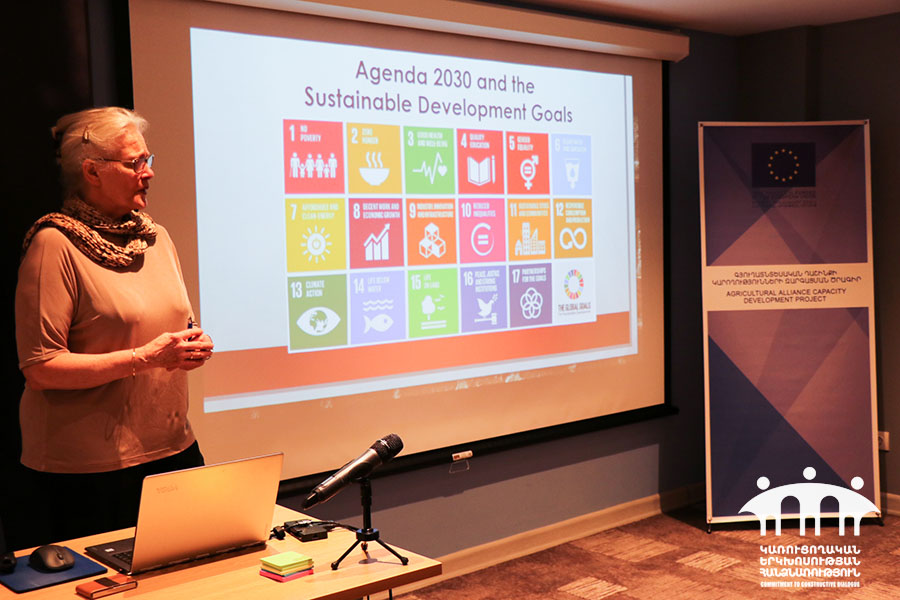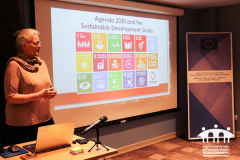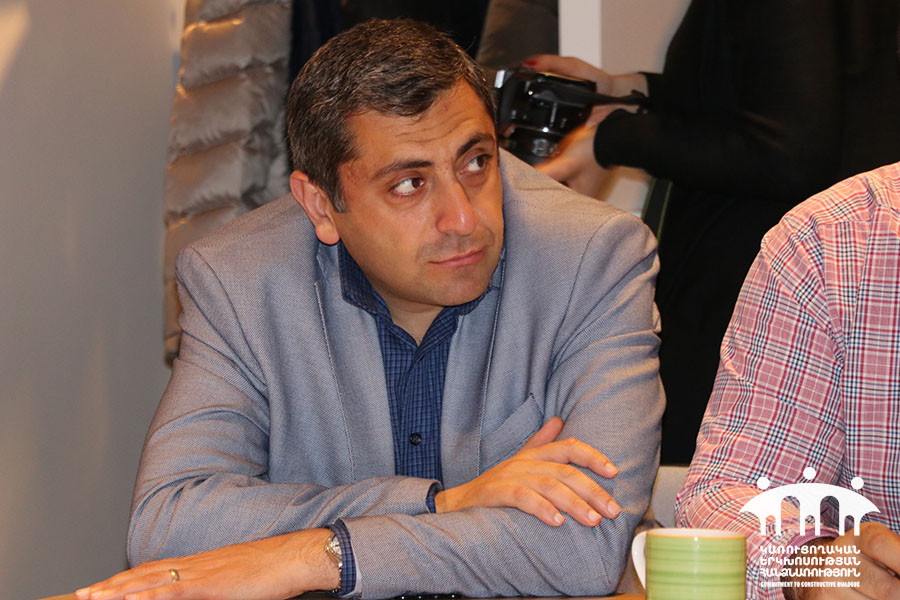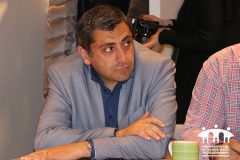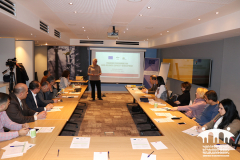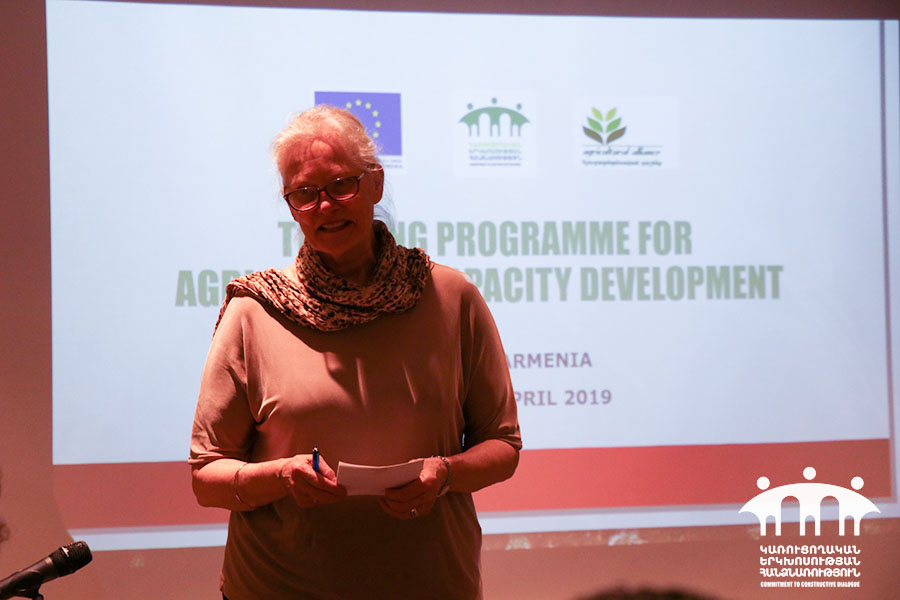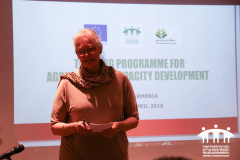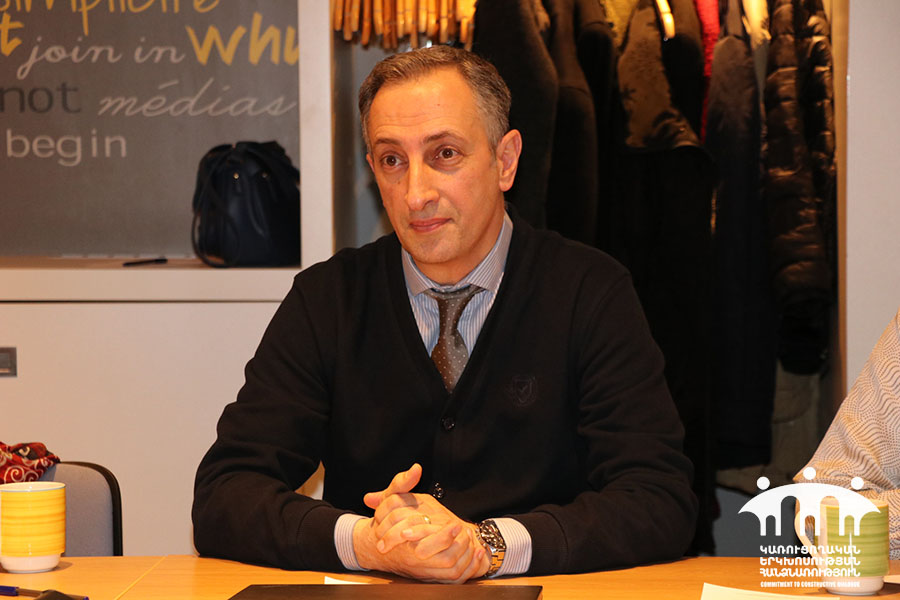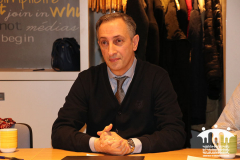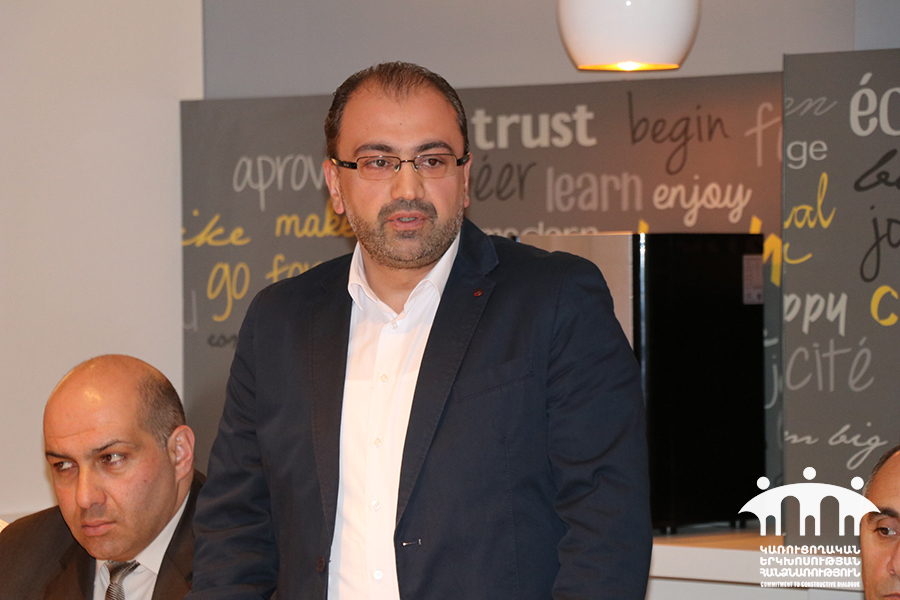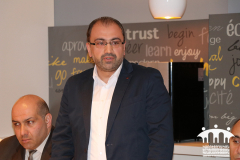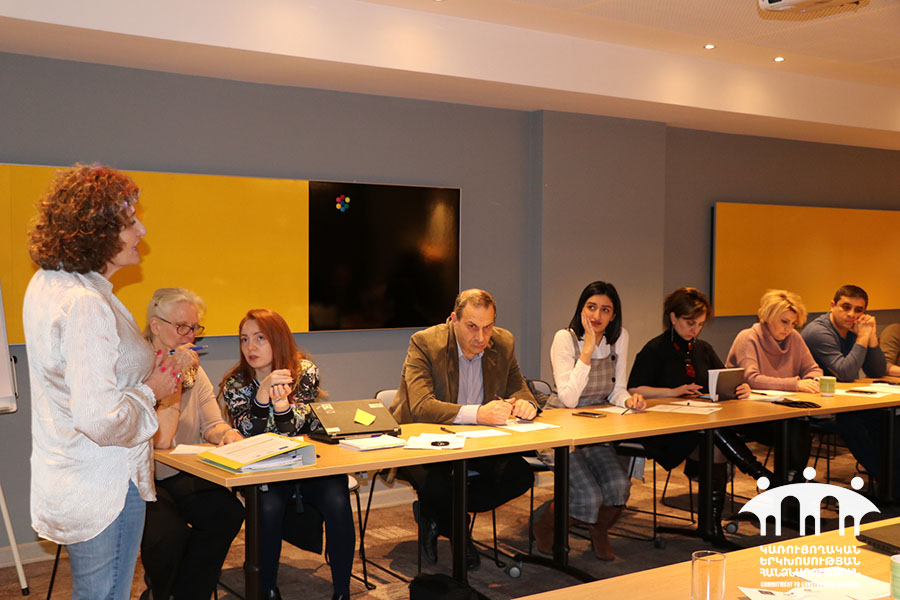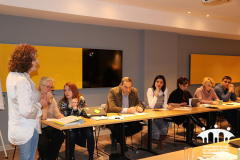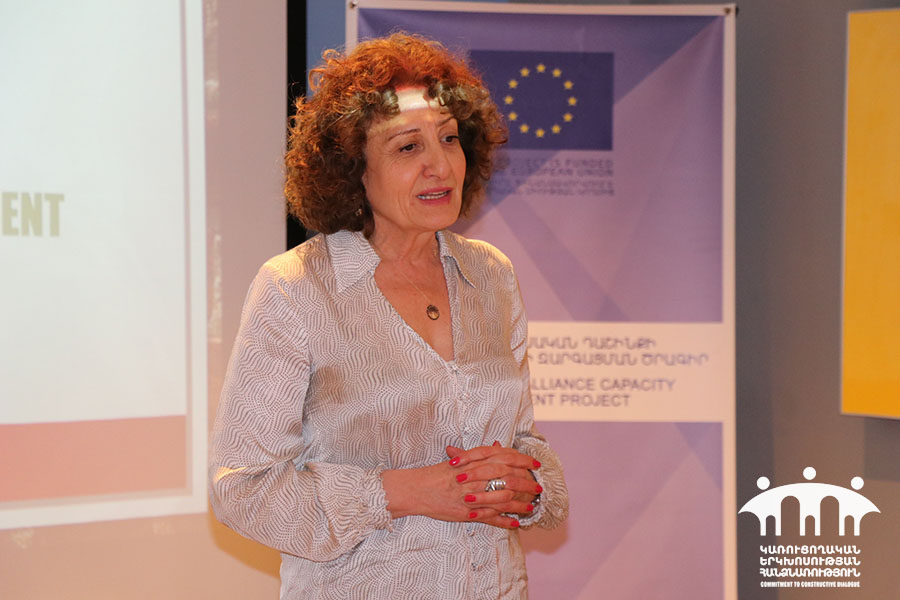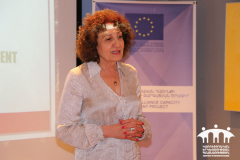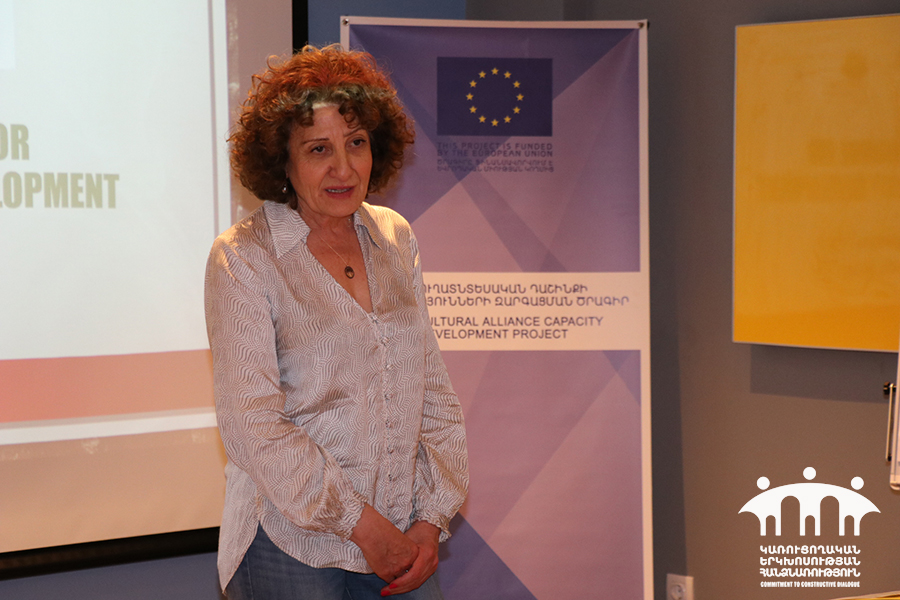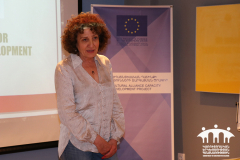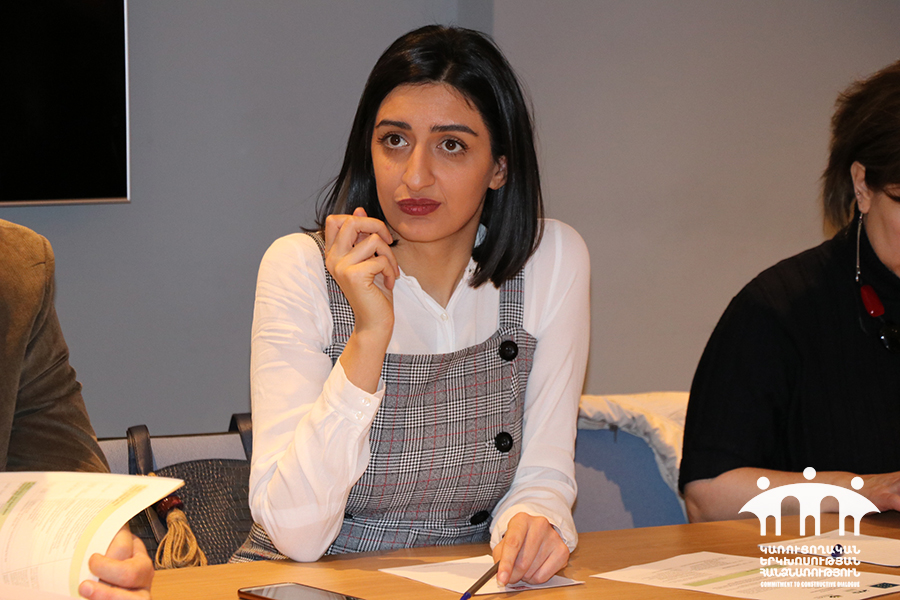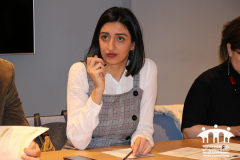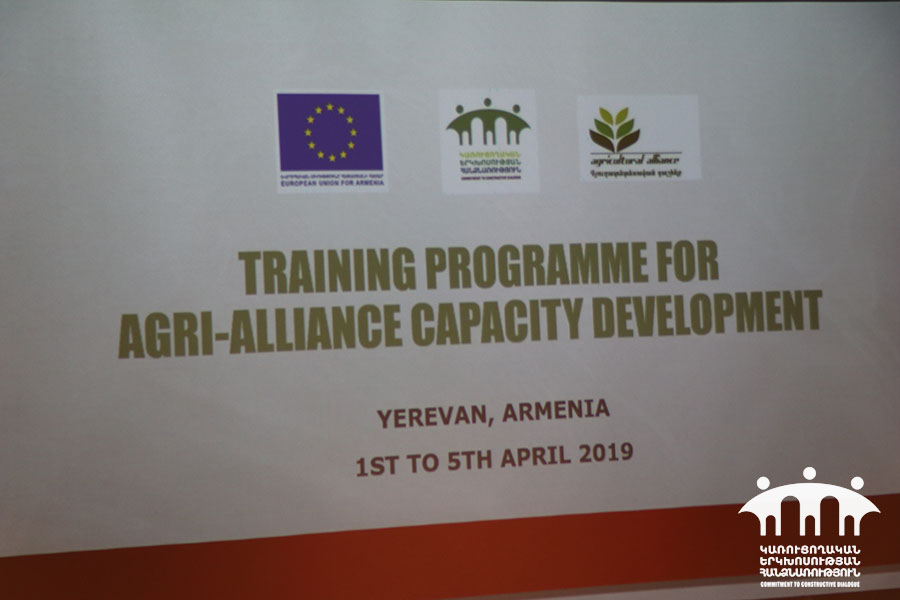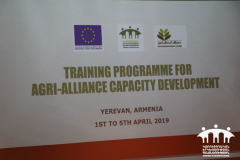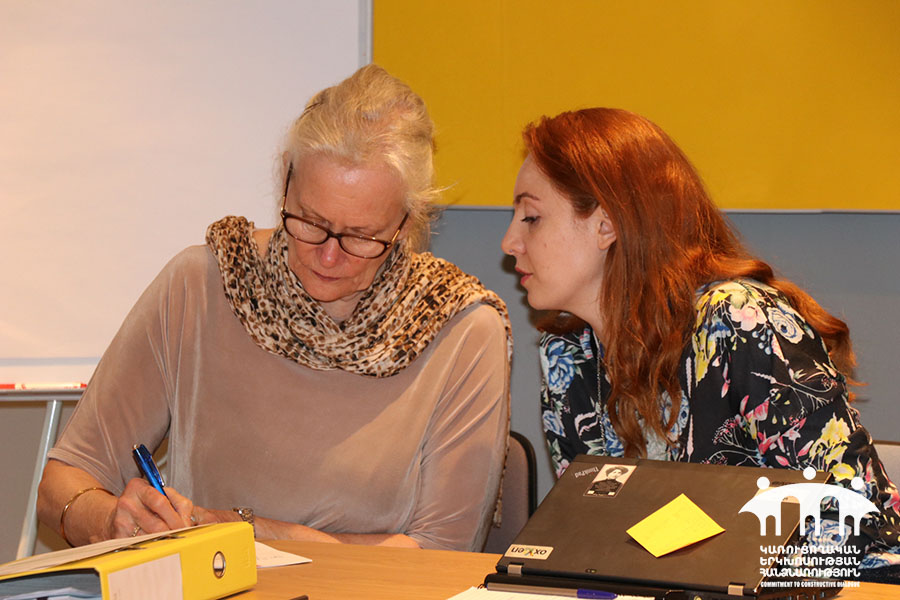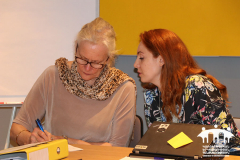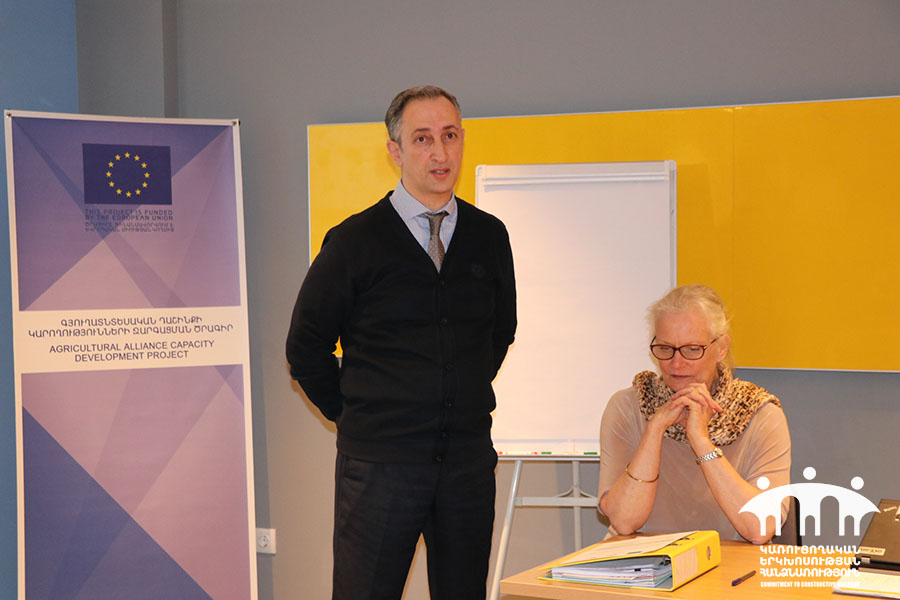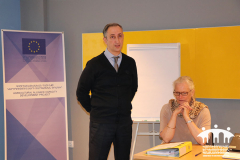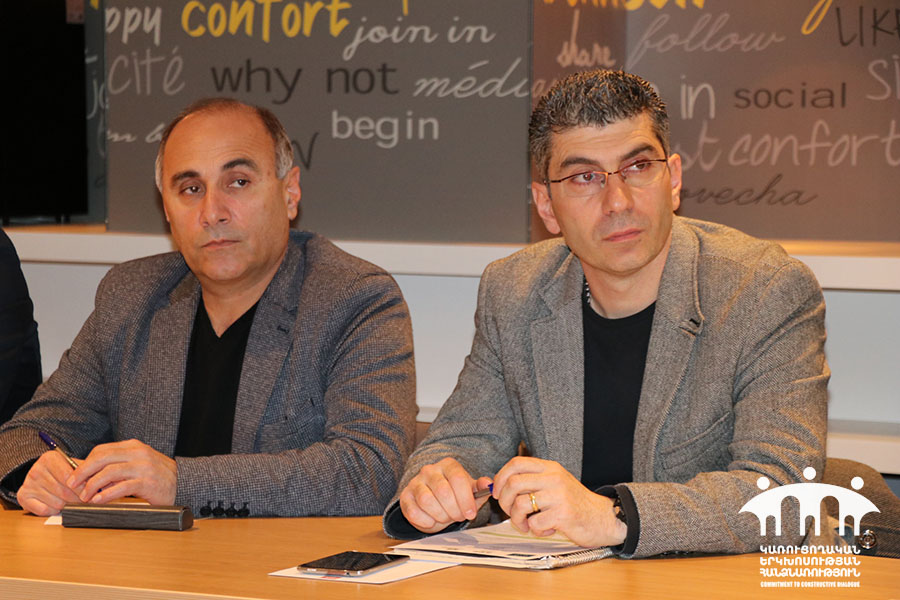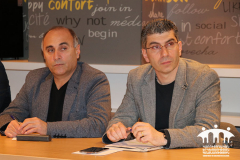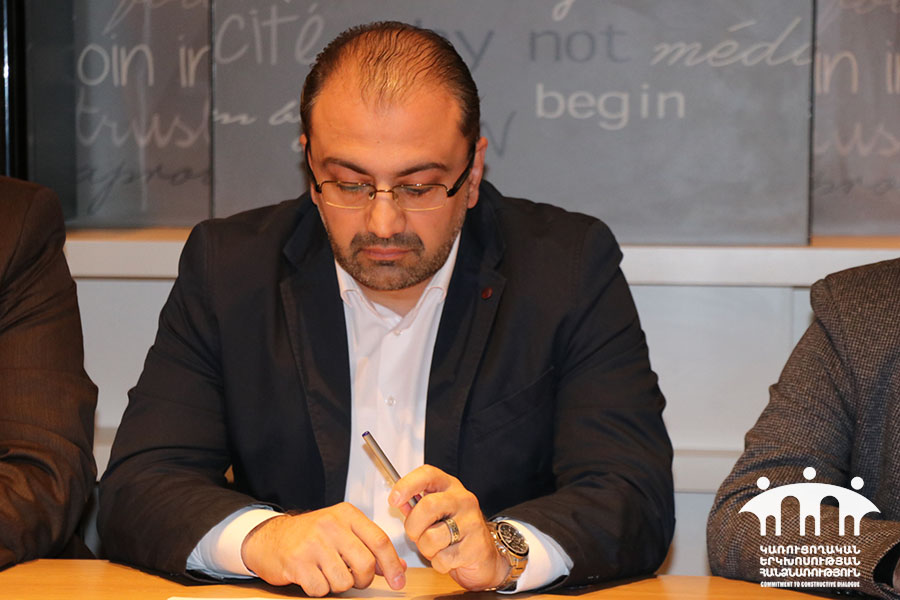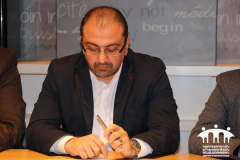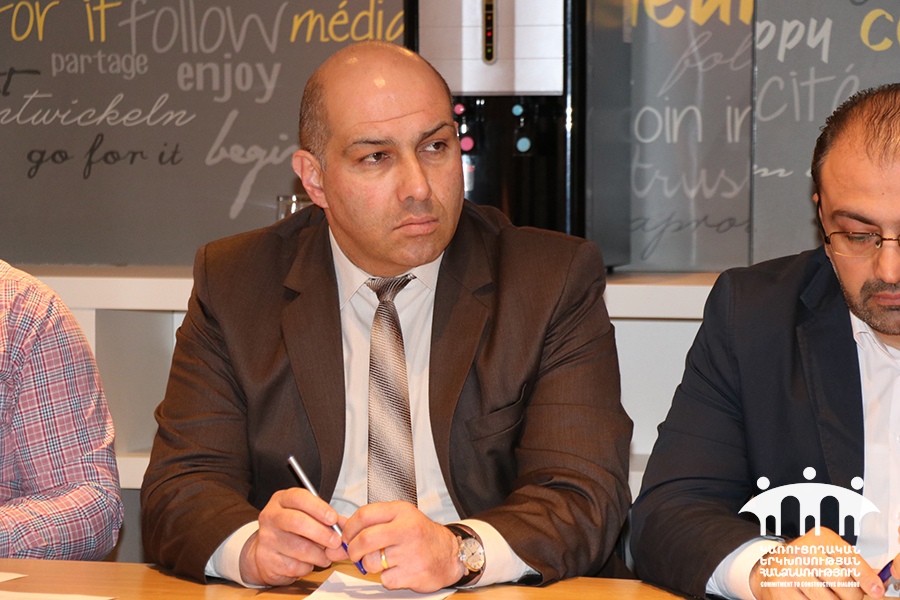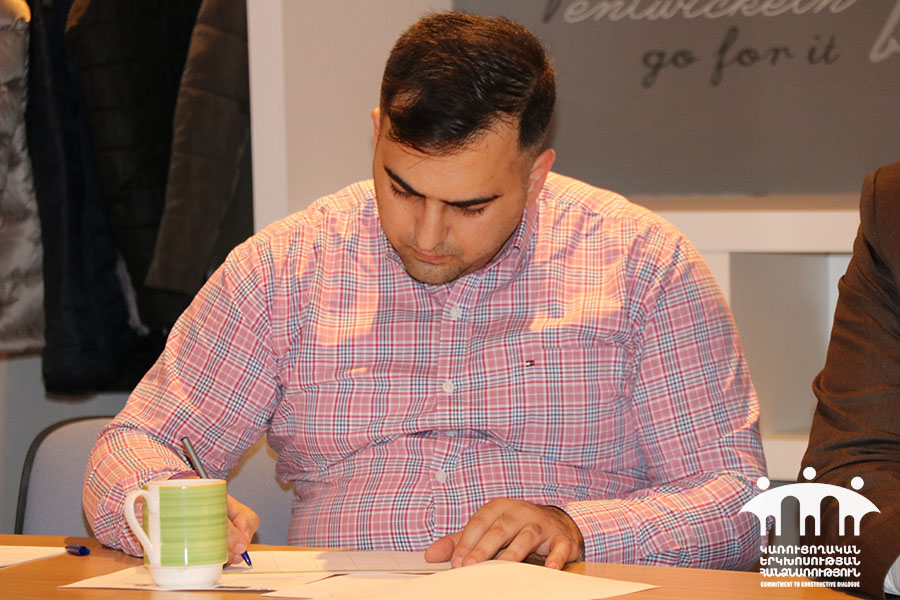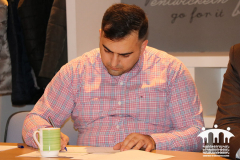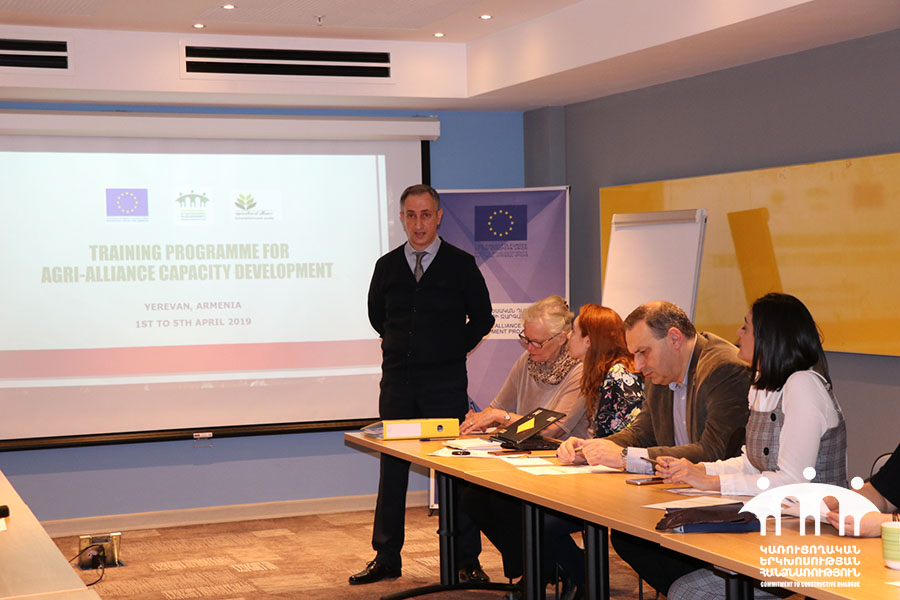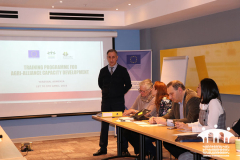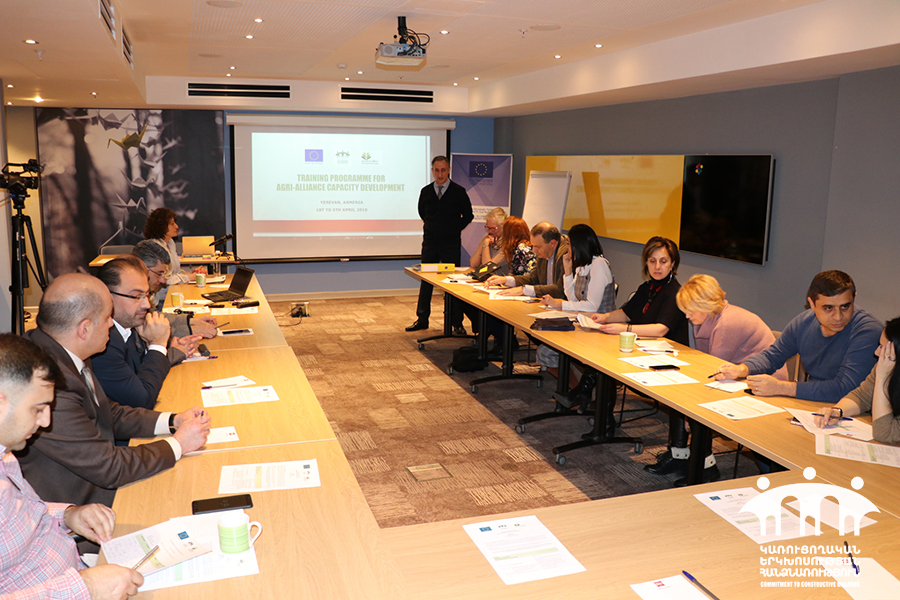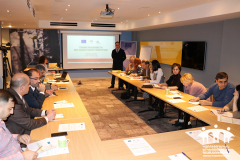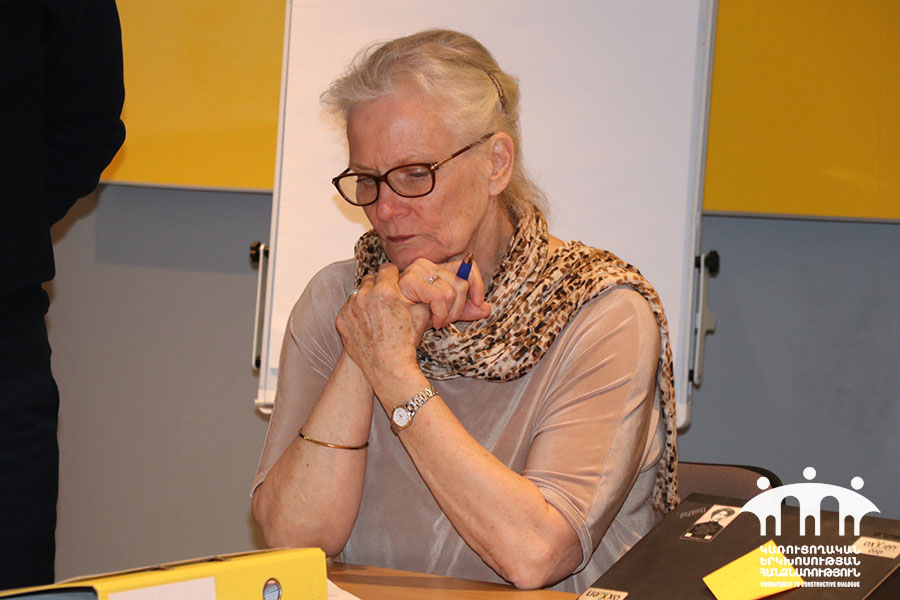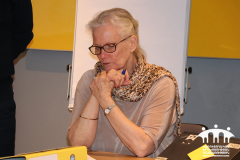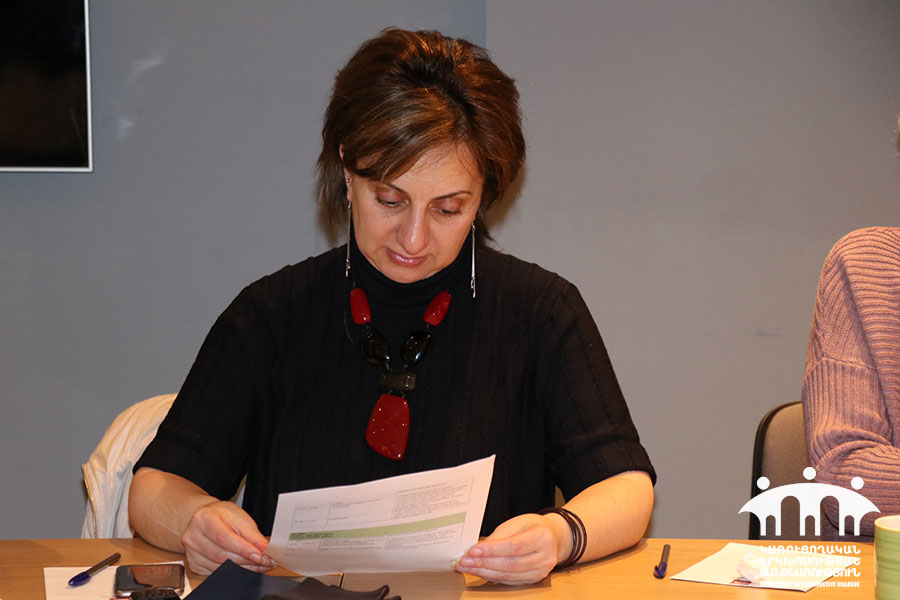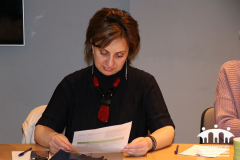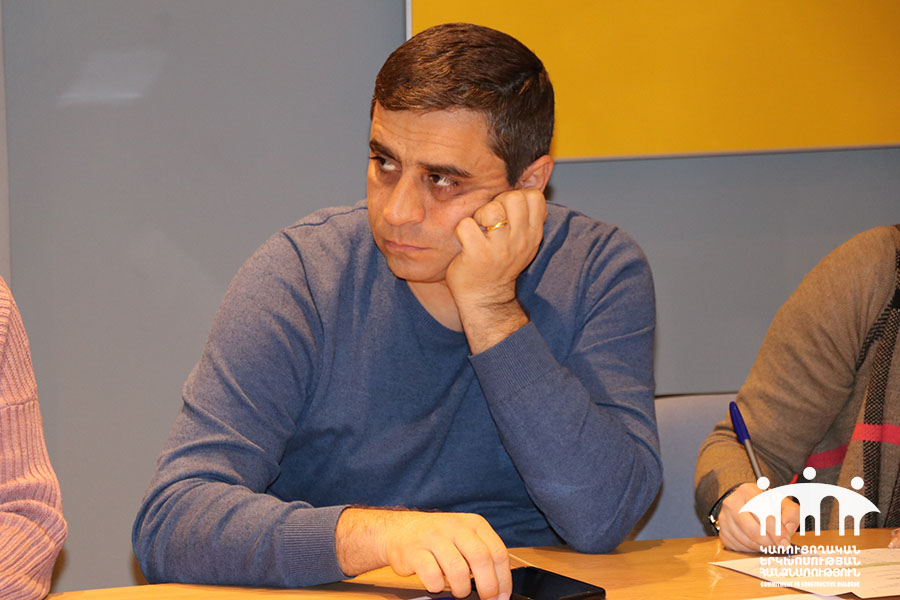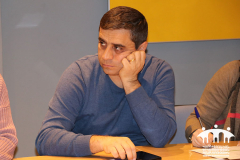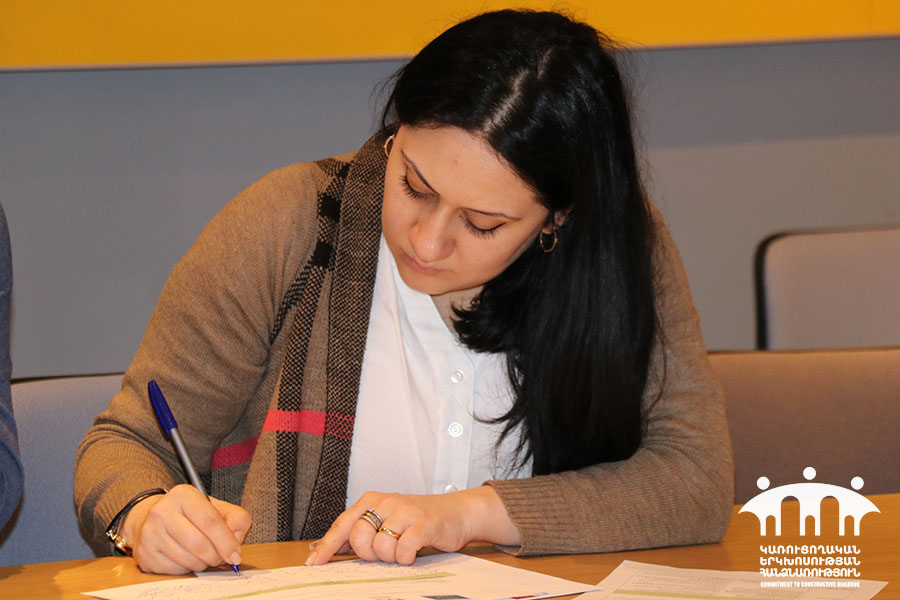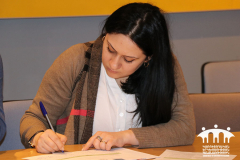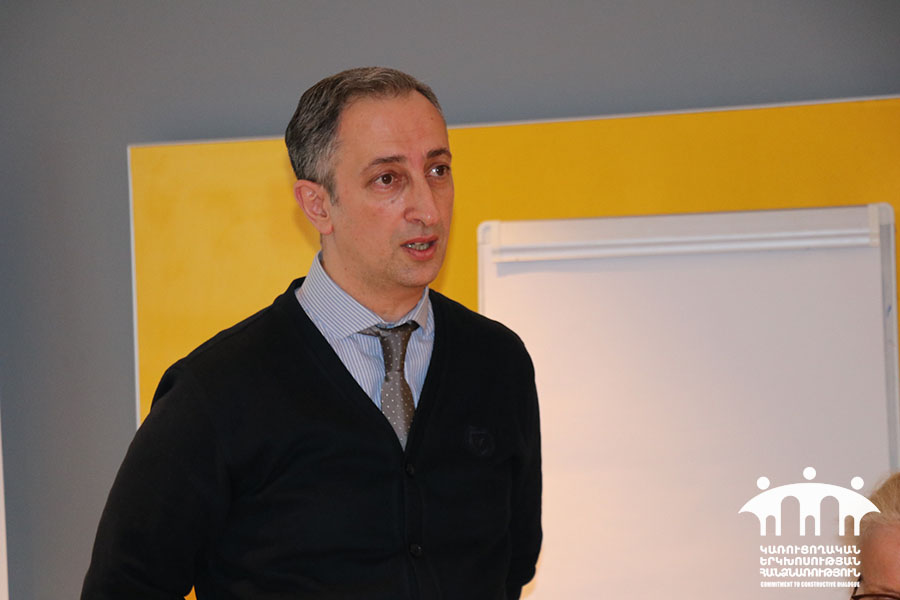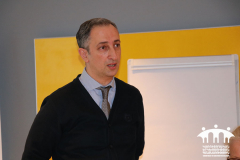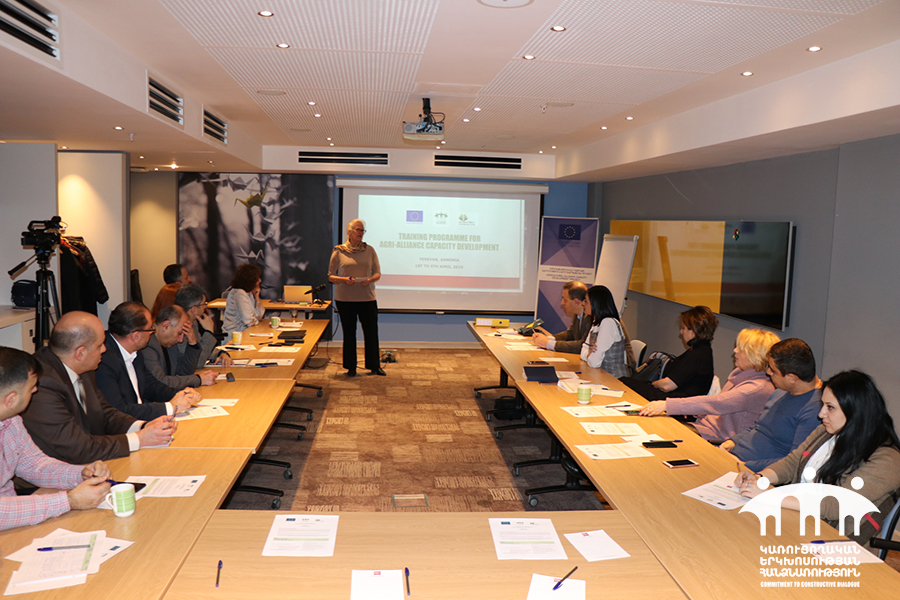
Today, on 1 April, the Agricultural Alliance of Armenia, which has been created in the framework of the “Agricultural Alliance Capacity Development” Project implemented in the scope of the EU-funded “Commitment to Constructive Dialogue” Project.
Mr. Vadim Uzunyan, “Participatory Policies – Sustainable Agriculture” Project Manager (project implemented by the Agricultural Alliance of Armenia) welcomed the participants of the training, noting that the alliance has a long history of its development and growth and the course will give a new breath and opportunity to the alliance.
The training will be conducted by Ms Beris Gwynne representing the Partnership Brokers Association (PBA), a global/worldwide organisation who has 30-year experience in international development including Multi-stakeholder partnership management.
“In the recent self-assessment processes of the alliance, all members have raised and emphasized that the weakest side of the alliance is the financial stability, the methods of internal and external management. In this program, we have included topics that will have special emphasis on further financial stability of the alliance, as well as finding new ways of managing and communicating,” Vadim Uzunyan said.
Ms Margarita Hakobyan OxYGen’s Chair of Trustees mentioned that the alliance had been created on the principle of volunteering by those who were concerned about a number of issues in the field of agriculture. “I think the velvet revolution has really changed the situation, there are better opportunities, and we must take advantage of those opportunities and do not miss this section. Currently, civil society should be actively involved especially in the national strategies, legislative framework, and other changes, undertake a serious role and invite the government to dialogue,” she said.
According to Margarita Hakobyan, the 5-day course is a unique opportunity to connect with different world-wide networks and to know what is happening in the world.
Mr. Vardan Urutyan, the rector of the Armenian National Agrarian University, attended the training as well. He noted that before the formation of the alliance there was no body that would unite people who think similarly and believe in their work. “Such trainings are very important to understand how to implement our vision more efficiently and with little costs. This will also give an opportunity to understand the international experience,” he said.
Notably, the objective of the course is the development of the Agri-Alliance capacities on the following topics:
- financial viability of Alliances and fundraising skills (e.g.. international donors mapping, learning from international MSP best cases of financial viability and joint fundraising);
- joint proposal development for the Alliances (specific to MSP project development and attractive for donors);
- governance/management of Alliances (including internal and external governance of Alliances, partnering strategy development etc.);
- public monitoring on Agricultural and Food Security policies/strategies.


